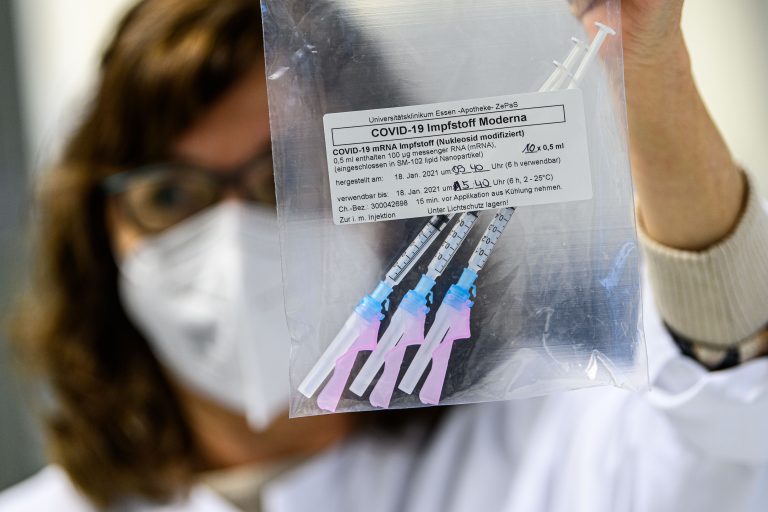Baseball legend Hank Aaron died on Friday, Jan. 22, at the age of 86. Aaron, who overtook Babe Ruth’s home run title of 714 in 1987, held the crown until Barry Bonds eclipsed him in 2007. Aaron rests at number two on the Career Home Run Leaders list.
According to CNN, the Atlanta Braves said Aaron passed away in his sleep.
On Jan. 5, Aaron received Moderna’s vaccine against the SARS-CoV-2 novel coronavirus, which causes COVID-19. According to Associated Press, Aaron hoped “to send a message to Black Americans that the shots are safe.”
Aaron’s family has stated that his death was not related to the vaccine.
Aaron was quoted as saying getting vaccinated “makes me feel wonderful” and: “I don’t have any qualms about it at all, you know. I feel quite proud of myself for doing something like this… It’s just a small thing that can help zillions of people in this country.”

Success
You are now signed up for our newsletter
Success
Check your email to complete sign up
In December, VOX reported on the launch of a global campaign to harness “influencers” to drive public demand to get vaccinated after multiple polls indicated only 40 percent of people were willing to take the jab as soon as possible.
“Influencers can be very helpful in spreading awareness about [the] benefits of vaccines and advocating for vaccine acceptance,” said WHO spokesperson Tarik Jašarević in an email to VOX’s Recode.
On Jan. 18, California State Epidemiologist Dr. Erica S. Pan released a statement calling for the halt of a batch of Moderna’s vaccines due to “possible allergic reactions that are under investigation” after several individuals suffered severe allergic reactions after injection.
American rights and environmental lawyer Robert F. Kennedy Jr. said in an article posted on his website, The Defender: “Public health advocates worry that the vast majority of injuries and deaths will go unreported to the Vaccine Adverse Events Reporting System (VAERS), the notoriously broken voluntary surveillance system run by the U.S. Department of Health and Human Services (HHS).”
A 2001 study by the Department of Health and Human Services found that “fewer than 1% of vaccine adverse events are reported.” As of Jan. 23, the Center for Disease Control’s (CDC) WONDER reports VAERS contains 170 life threatening events, 121 deaths, and 65 cases of permanent disability in relation to all forms of the COVID-19 vaccine.
According to the CDC, the first novel coronavirus vaccines authorized for distribution in the United States are a “new type of vaccine to protect against infectious diseases” known as mRNA (Messenger RNA) vaccines.
While a conventional vaccine involves injecting a weakened or inactive virus into the body to generate an immune response, the novel coronavirus mRNA vaccines insert Messenger RNA into your body’s cells, which causes your own cells to generate the spike protein of the SARS-CoV-2 Virus. Spike proteins are the portion of the virus that give Coronavirus their distinct “crown” appearance, which the virus uses to bind to and enter human cells, turning them into a factory for viral replication and virus-like particles.
The CDC website continues: “The cell displays the protein piece on its surface. Our immune systems recognize that the protein doesn’t belong there and begin building an immune response and making antibodies, like what happens in natural infection against COVID-19” and claims: “The cell breaks down and gets rid of the mRNA soon after it is finished using the instructions.”
In November, Moderna announced in its own preliminary Phase 3 trials: “Vaccine efficacy against COVID-19 was 94.1%; vaccine efficacy against severe COVID-19 was 100%.” However, its press release did not provide data to support this conclusion.
According to the educational website The History of Vaccines, created by the College of Physicians of Philadelphia: “Vaccine development is a long, complex process, often lasting 10-15 years and involving a combination of public and private involvement,” yet according to Moderna’s own timeline for vaccine development, the mRNA used in the vaccine was completed only 25 days after the SARS-CoV-2 Virus was sequenced by Chinese Communist Party officials on Jan. 11, 2020.
Moderna shipped its first batch to the National Institute of Health (NIH) on Feb. 24, 2020, for the NIH’s Phase 1 clinical study, with the first participant dosed in March 2020. Less than nine months later, On December 18, 2020, the Food and Drug Administration (FDA) issued Moderna Emergency Use Authorization (EUA) to distribute its vaccine to Americans over the age of 18.
According to the FDA: “In determining whether to issue an EUA for a product, the FDA evaluates the available evidence to determine whether the product may be effective and also assesses any known or potential risks and any known or potential benefits. If the product meets the effectiveness standard and the benefit-risk assessment is favorable, the product is made available during the emergency.”
Follow us on Twitter or subscribe to our email list







